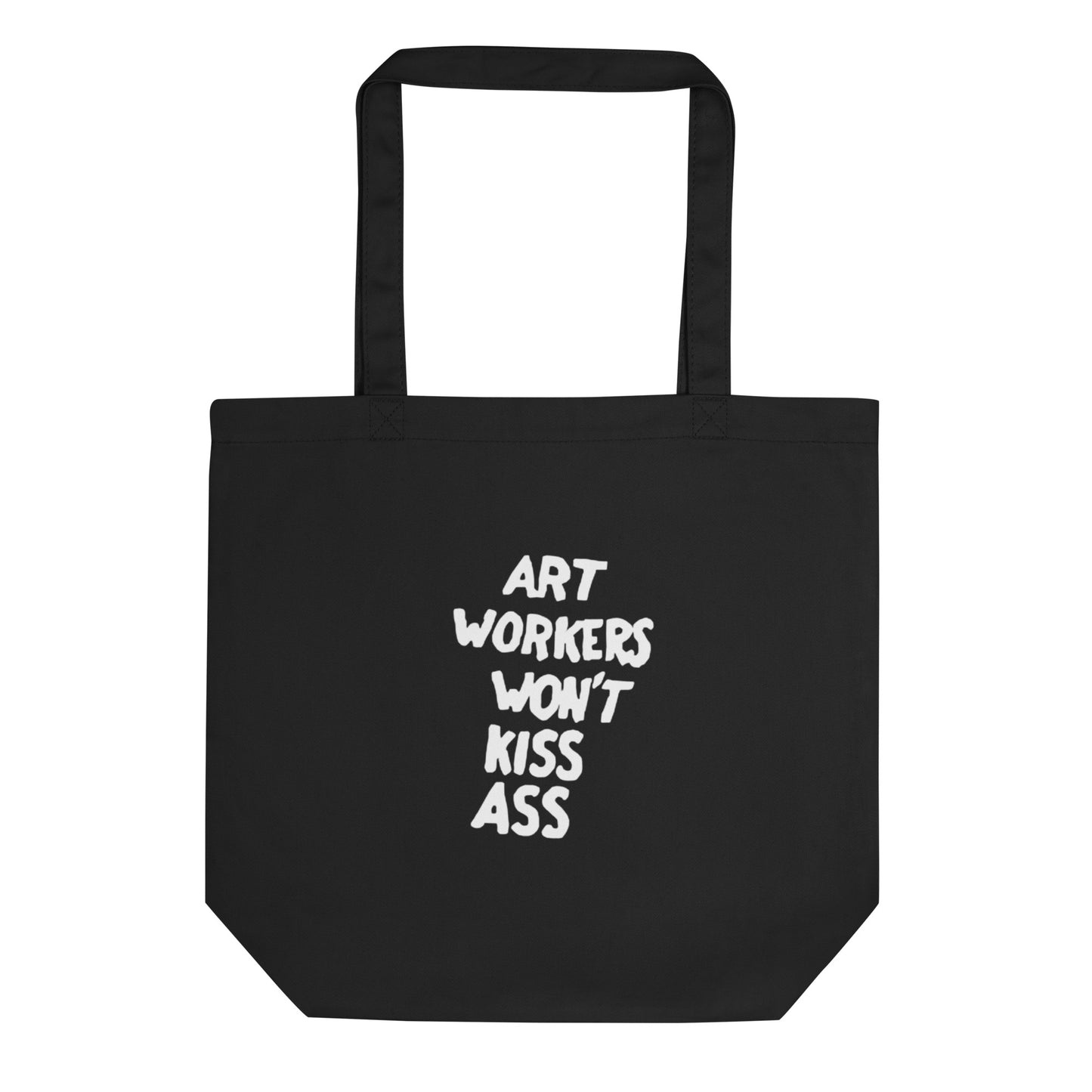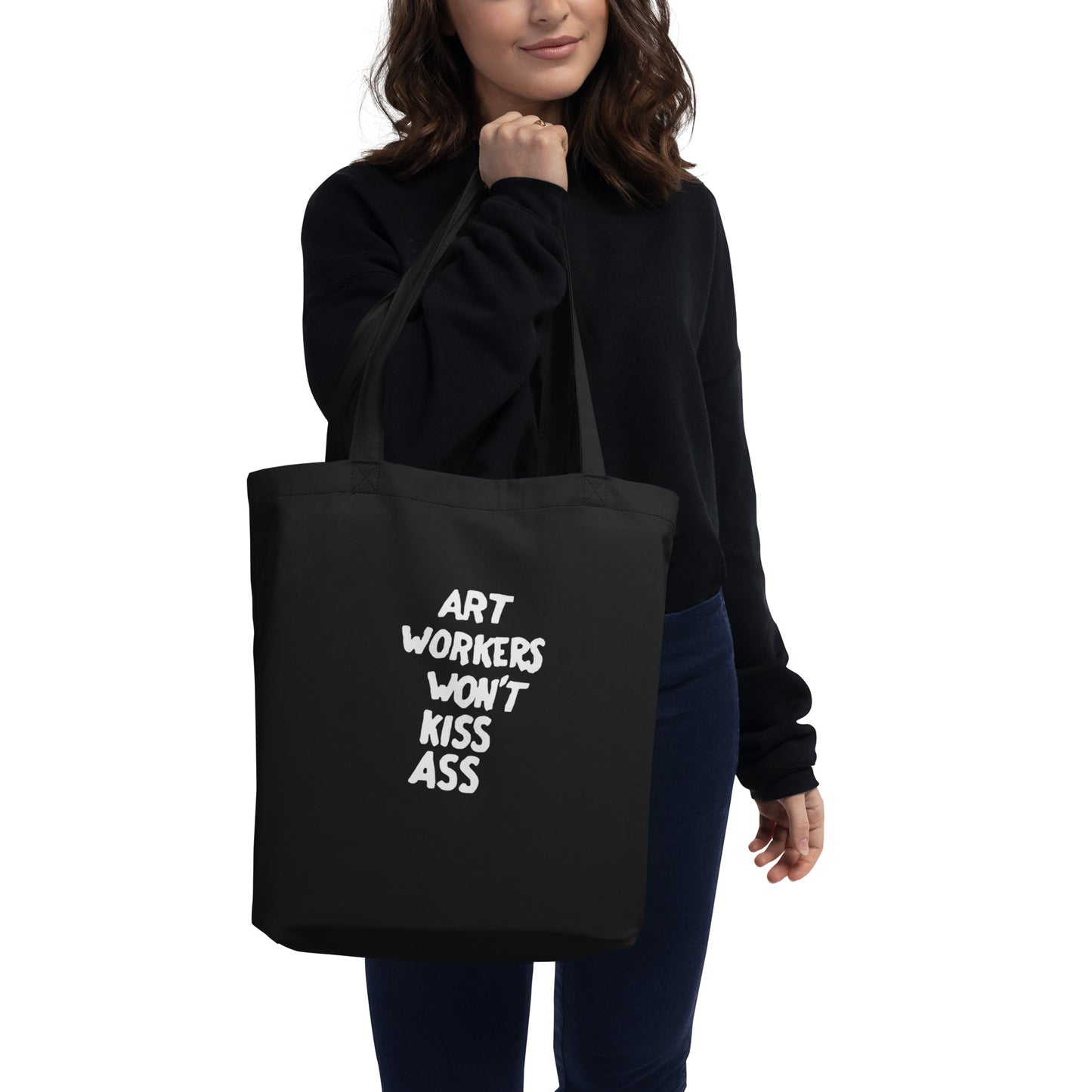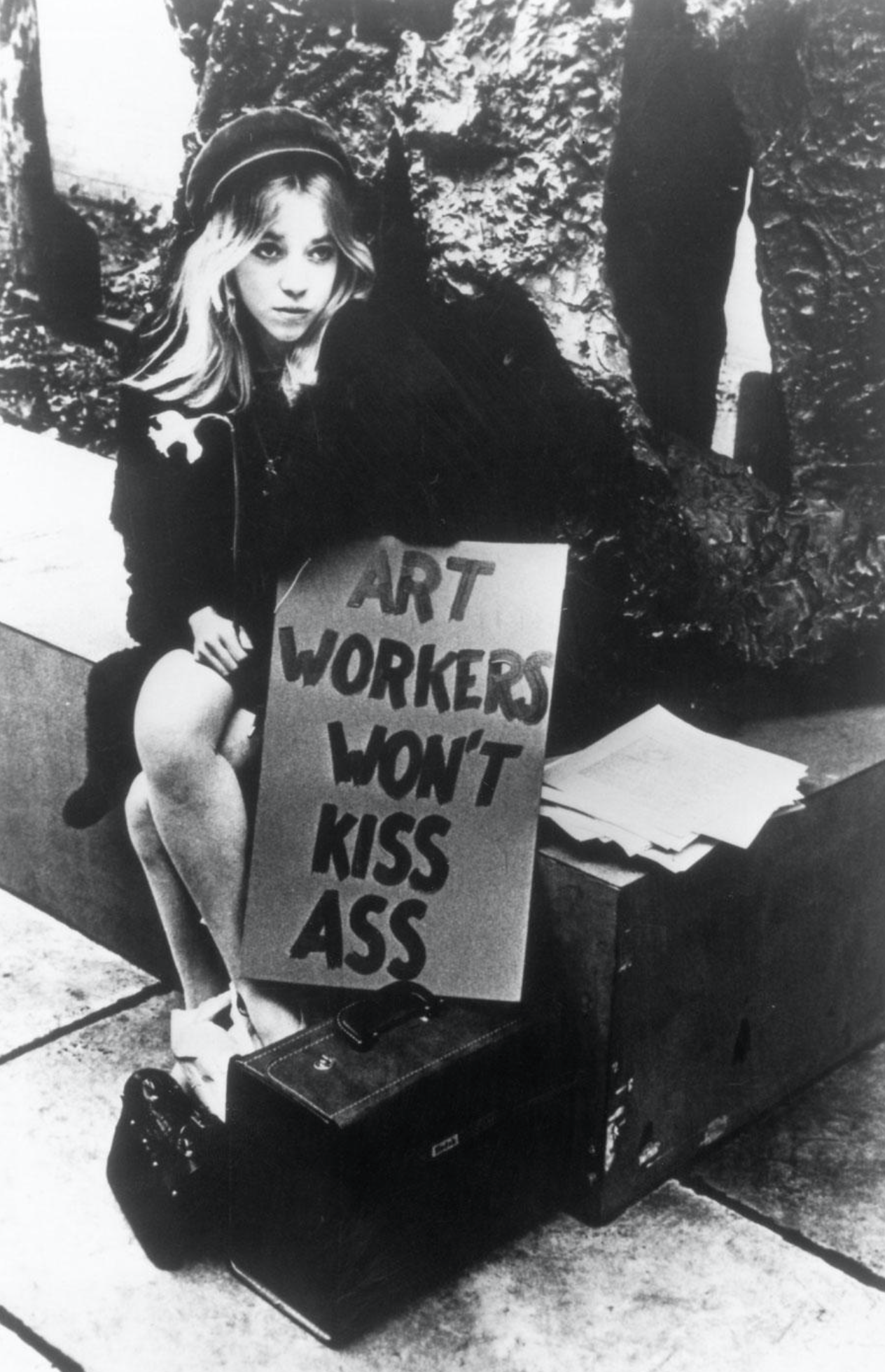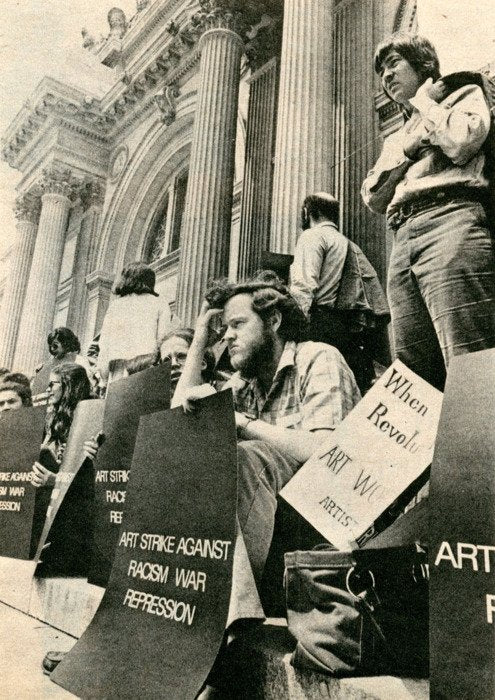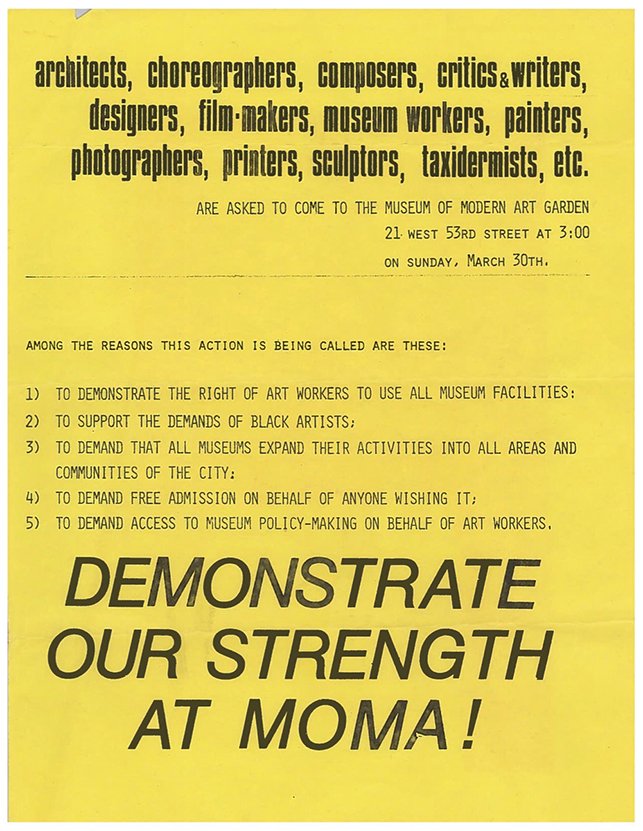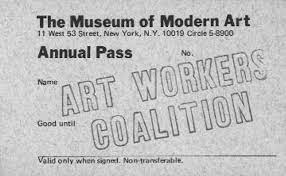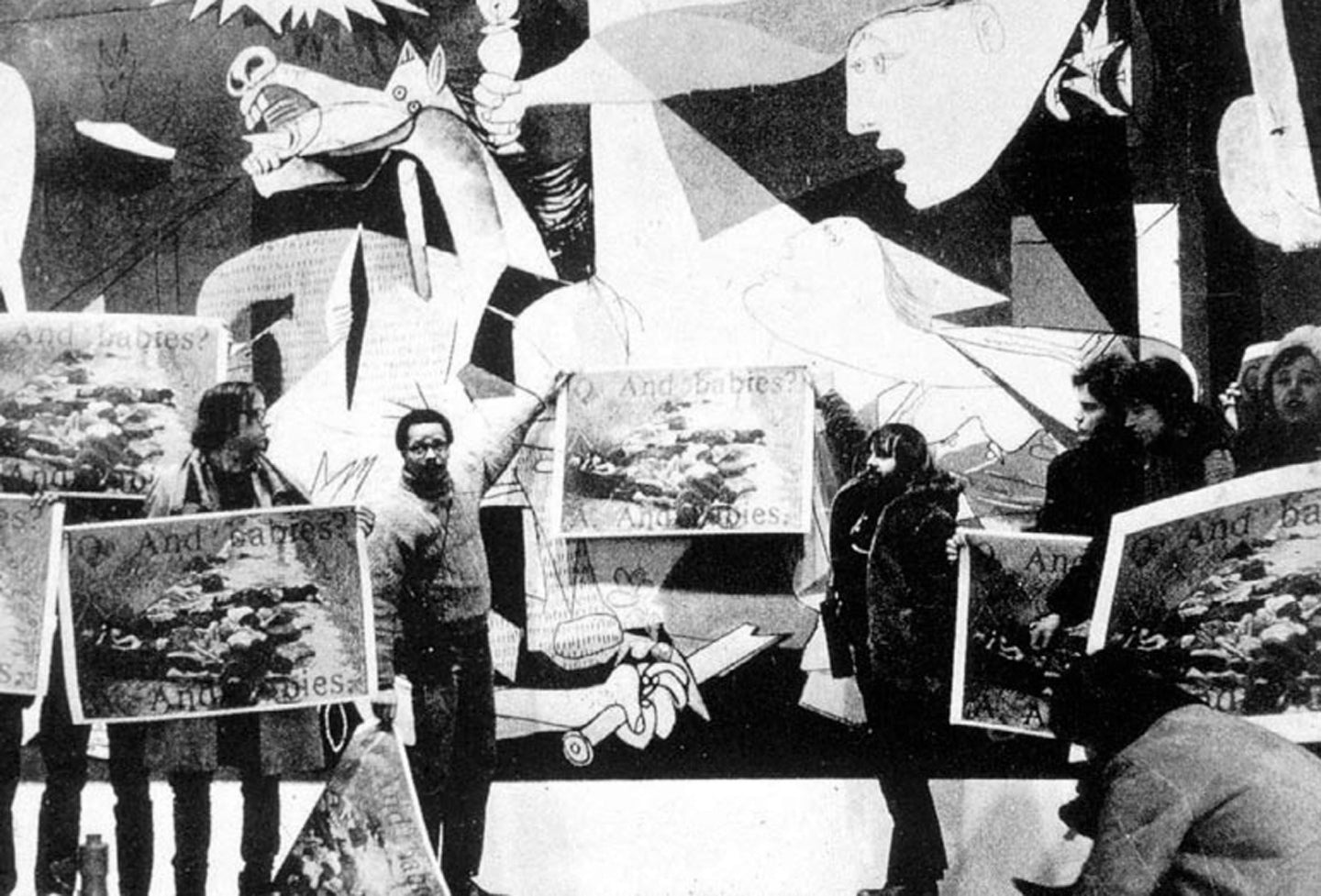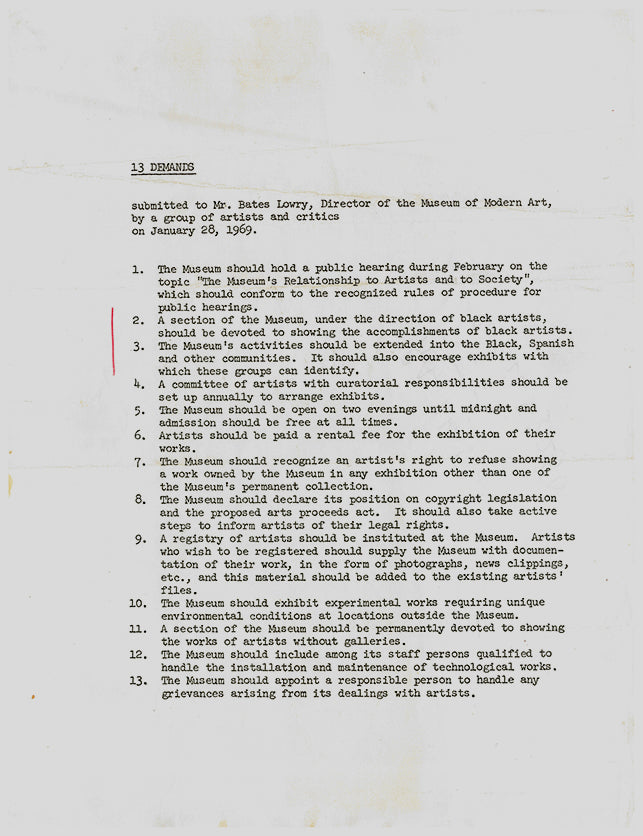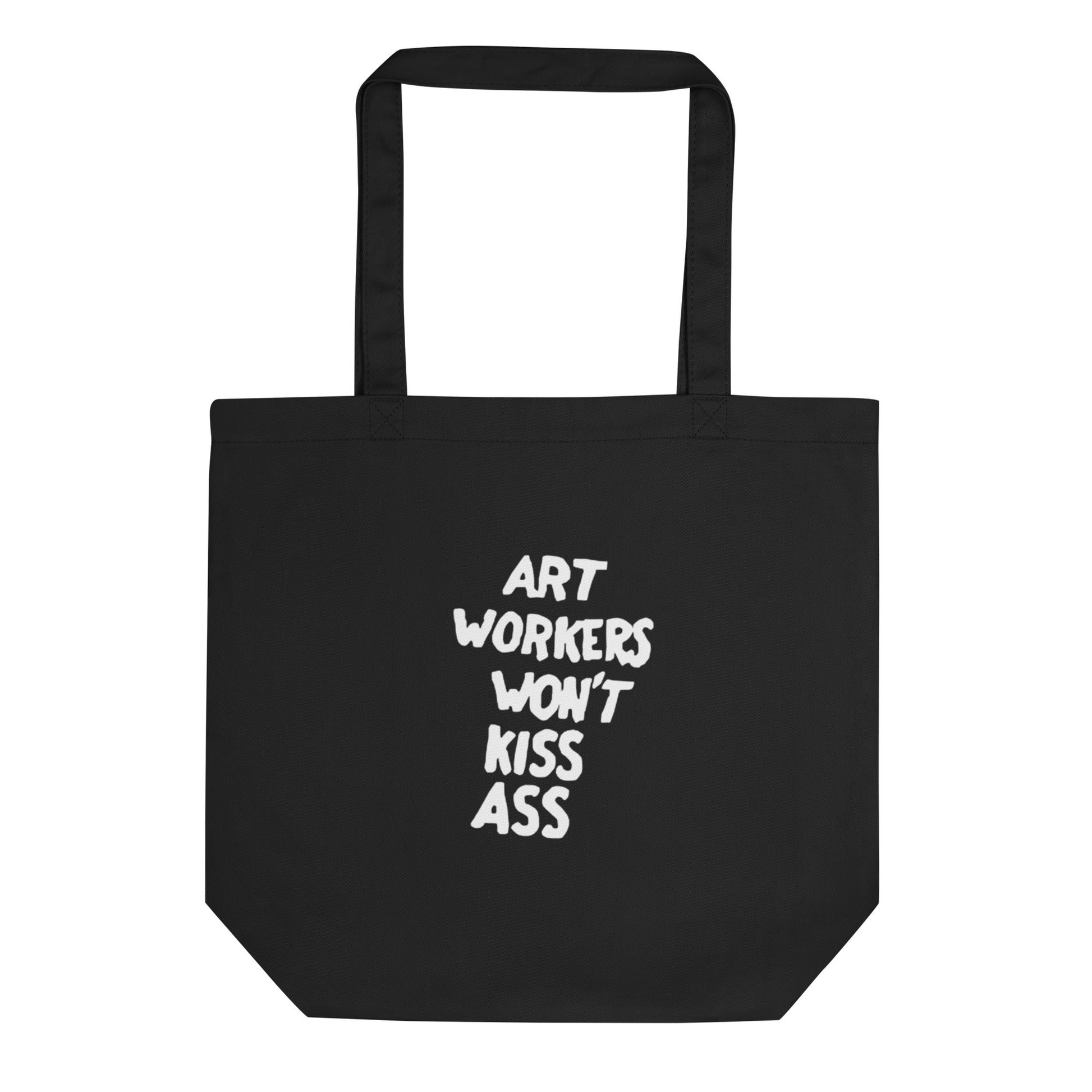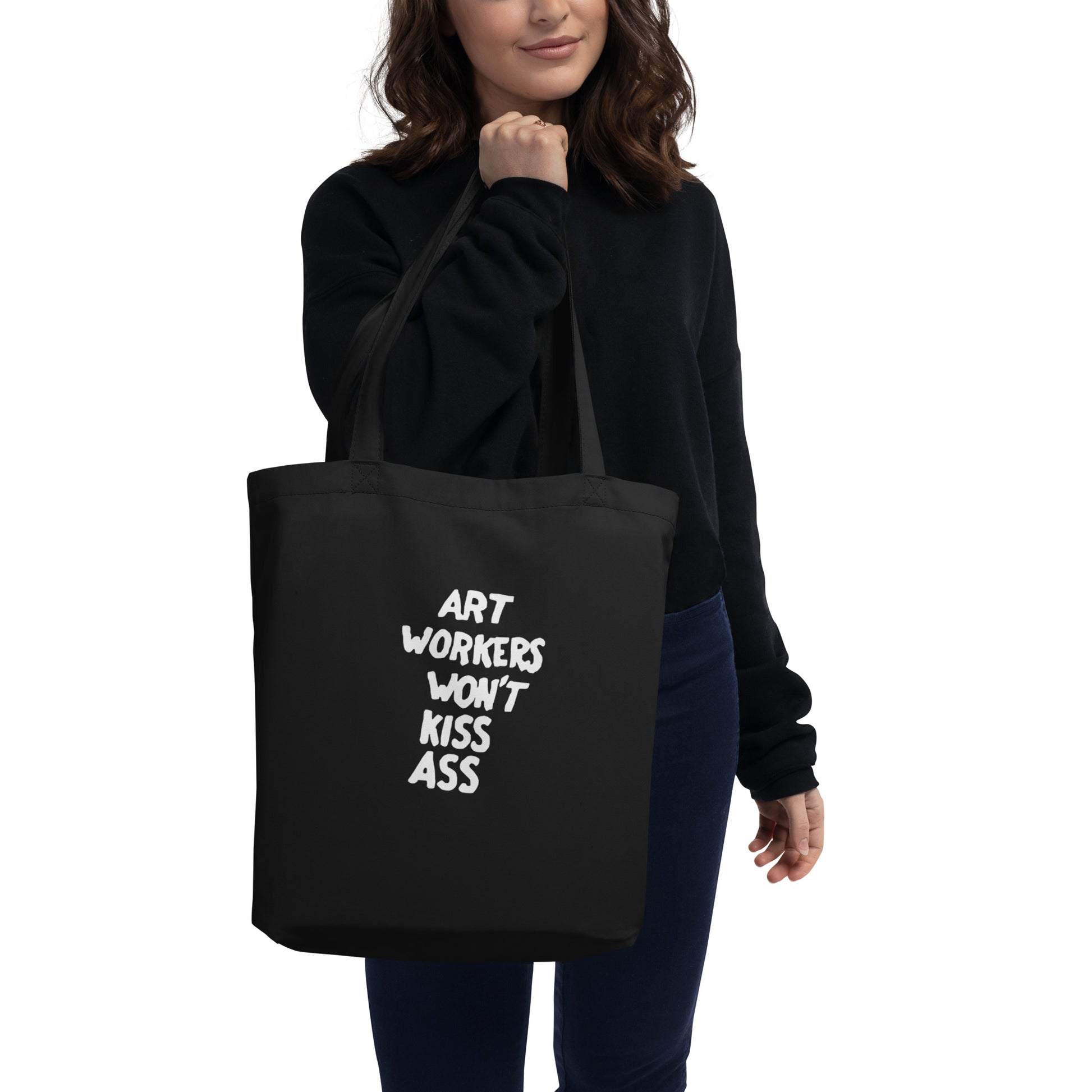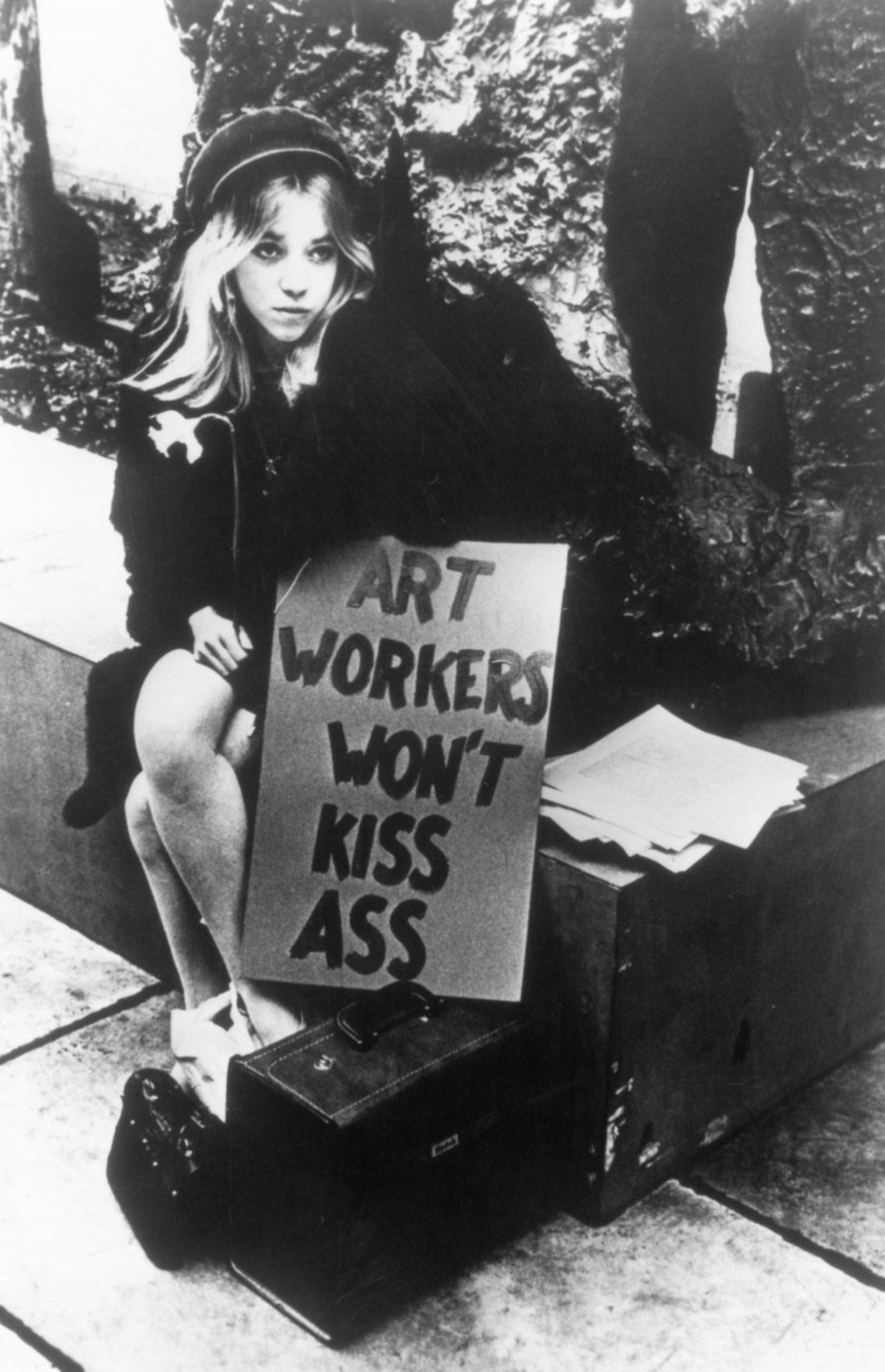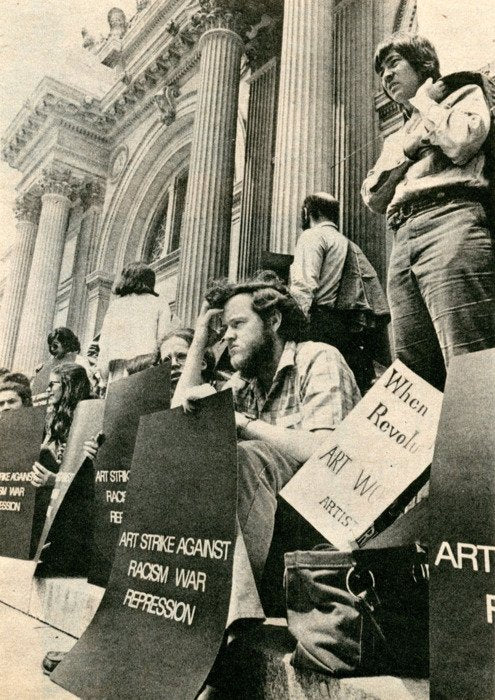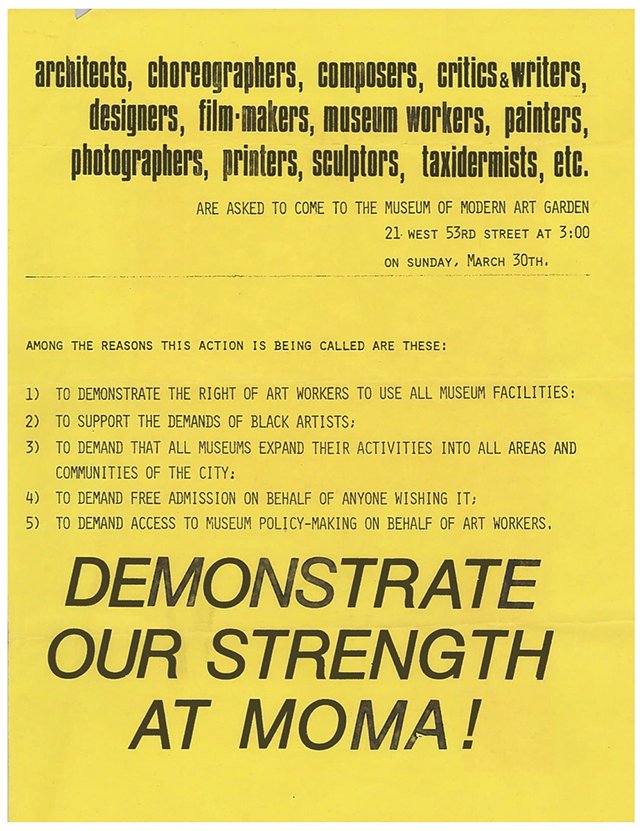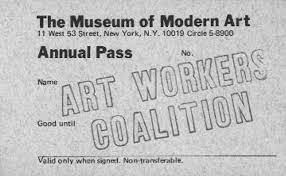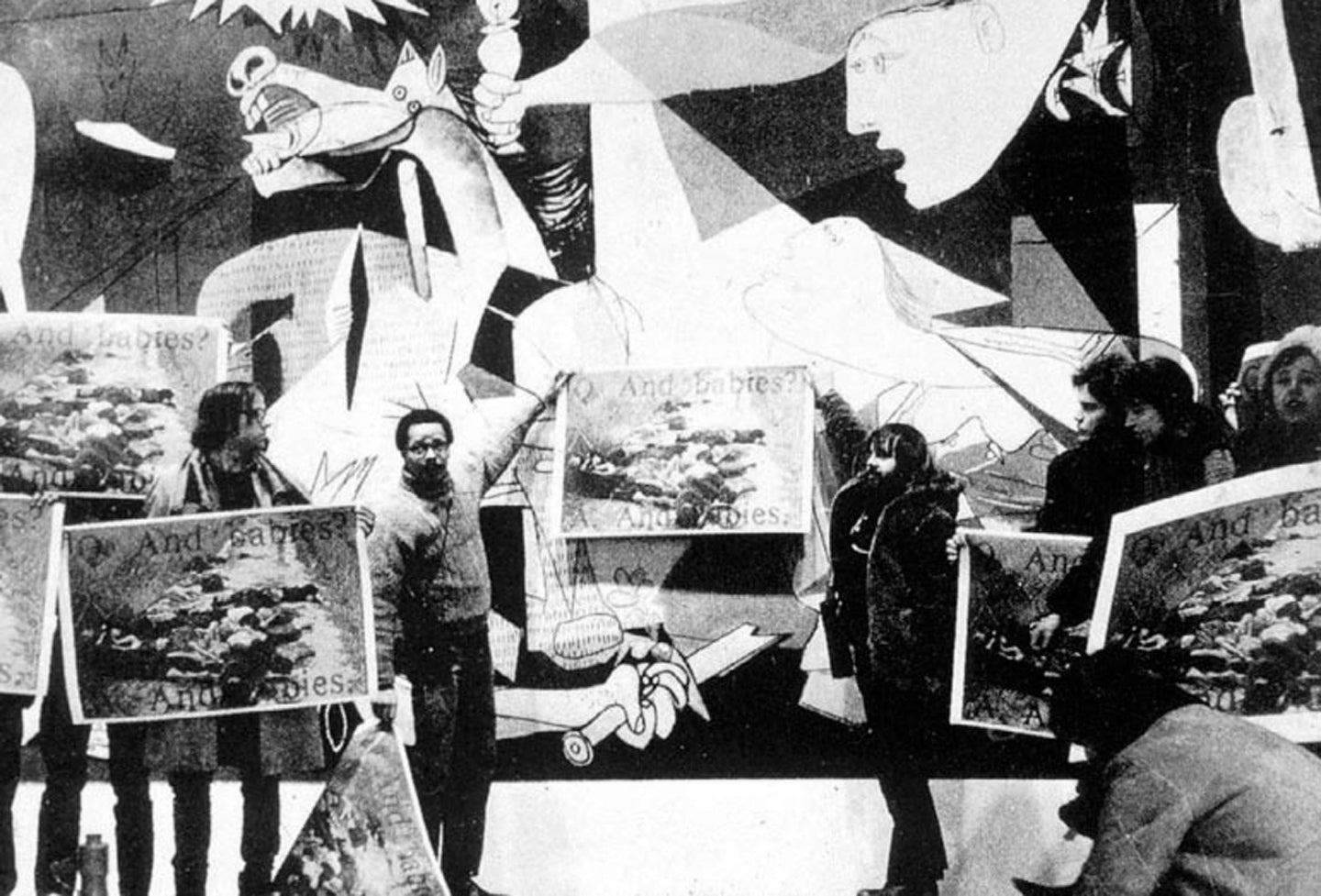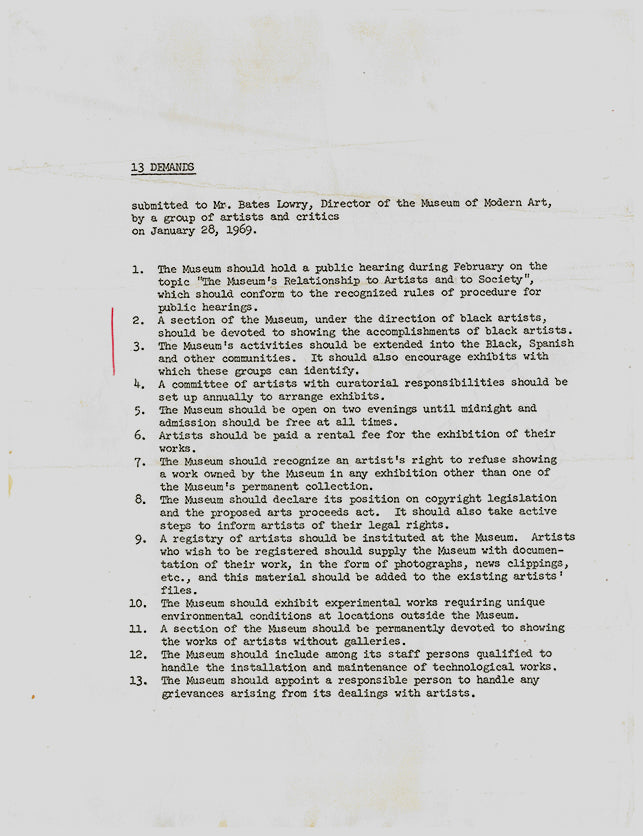Minor Canon
AWC Art Workers Won't Kiss Ass tote
Couldn't load pickup availability
The AWC grew out of an incident at MoMA during an exhibition curated by Pontus Hulten, The Machine at the End of the Mechanical Age. On January 3, 1969, Greek kinetic sculptor Takis, with the support of friends, physically removed his work from the exhibition. Although the work, Tele-sculpture (1960), had been purchased by the MoMA in 1963 and thus belonged to its permanent collection, Takis was unhappy with the museum's lack of consultation in choosing a work for exhibition which he considered no longer adequately represented his current artistic practice. The artist took his work into the museum's sculpture garden and remained there until he received confirmation from museum officials that his work would be withdrawn from the exhibition. The incident led to a series of meetings held at the Chelsea Hotel in which the group that had supported Takis's action discussed issues relating to the political and social responsibility of the art community. The group included Takis, American kinetic sculptor Wen-Ying Tsai, German conceptual artist Hans Haacke, American writer and independent curator Willoughby Sharp, co-founder of Avalanche magazine Liza Bear, American artist and Village Voice art critic John Perreault, and American minimalist artist Carl Andre. On January 28, 1969, the AWC presented MoMa's director Bates Lowry with a list of 13 demands.
The 13 Demands that AWC submitted to Lowry were as follows:
- The Museum should hold a public hearing during February on the topic "The Museum's Relationship to Artists and to Society", which should conform to the recognized rules of procedure for public hearings.
- A section of the Museum, under the direction of black artists, should be devoted to showing the accomplishments of Black artists.
- The Museum's activities should be extended into the Black, Spanish and other communities. It should also encourage exhibits with which these groups can identify.
- A committee of artists with curatorial responsibilities should be set up annually to arrange exhibits.
- The Museum should be open on two evenings until midnight and admission should be free at all times.
- Artists should be paid a rental fee for the exhibition of their works.
- The Museum should recognize an artist's right to refuse showing a work owned by the Museum in any exhibition other than one of the Museum's permanent collection.
- The Museum should declare its position on copyright legislation and the proposed arts proceeds act. It should also take active steps to inform artists of their legal rights.
- A registry of artists should be instituted at the Museum. Artists who wish to be registered should supply the Museum with documentation of their work, in the form of photographs, news clippings, etc., and this material should be added to the existing artists' files.
- The Museum should exhibit experimental works requiring unique environmental conditions at locations outside the Museum.
- A section of the Museum should be permanently devoted to showing the works of artists without galleries.
- The Museum should include among its staff persons qualified to handle the installation and maintenance of technological works.
- The Museum should appoint a responsible person to handle any grievances arising from its dealings with artists.
Upon receiving AWC's 13 Demands, MoMA met and held a dialogue with artist representatives from AWC that was publicly acknowledged. Lowry and MoMA, however, refused to meet all of the specific demands of the AWC, such as the demand to hold a public hearing on the topic "The Museum's Relationship to Artists and to Society". After organizing a number of demonstrations in front of the museum, the group held an open hearing at the New York School of Visual Arts on 10 April 1969. The event was retitled "What Should Be the Program of The Art Workers Regarding Museum Reform, and to Establish the Program of the Art Workers' Coalition." Some three hundred artists and members of the New York art community attended the hearing. The initial demands that had been made to the MoMA were debated within the larger group that formed during the open hearing, and later refined and addressed to all New York Museums. Artists and critics subsequently debated various subjects of contention including artists' rights, museum policy and broader political issues including the Vietnam War.
On 15 October 1969, the AWC organized a successful "Moratorium of Art to End the War in Vietnam." The MoMA, the Whitney Museum, the Jewish Museum and a large number of commercial art galleries closed for the day. The Metropolitan Museum and the Guggenheim Museum did not comply, although, under pressure from the AWC, the Metropolitan did postpone the opening of its American painting and sculpture show scheduled for that day, while the Guggenheim was picketed. The coalition's activities eventually led to changes in how museums interact with artists, a contribution to the art world that is considered lasting in spite of the coalition's short three-year existence. The AWC ceased its activities at the end of 1971.
This tote features a slogan—ART WORKERS WON'T KISS ASS—from a protest sign that appears in a frequently reproduced image of an AWC protest action. The specific occasion and the identity of both the protestor and photographer are, to my knowledge, unknown. The slogan is reproduced here in the same hand-drawn script in which it appeared on the poster.
In recent years, museums have seen a renewed wave of labour militancy, especially following the landmark unionization of NYC's New Museum in 2019. We salute these initiatives and encourage all art workers to unionize their workplace (if it isn't already unionized). The predominant culture of exploitation and precarity in the arts is a choice, not a necessity, and those commentators (usually well-paid!) who argue that we simply cannot have art without the sacrifices of voluntaristic art workers (or the funding dollars of wealth criminals) suffer from a profound failure of the imagination. Let us take the AWC's slogan as an imperative: ART WORKERS, DON'T KISS ASS!
Further reading:
https://www.ucpress.edu/book/9780520269750/art-workers
https://primaryinformation.org/product/art-workers-coalition-documents-1/
https://thebaffler.com/salvos/against-artsploitation-kopel
https://momus.ca/proving-the-rule-the-exceptionalism-problem-of-art-world-labor/
https://artandlaborpodcast.com/podcast/episode-1-art-workers-coalition-and-the-guerrilla-art-action-group/
• 100% certified organic cotton 3/1 twill
• Fabric weight: 8 oz/yd² (272 g/m²)
• Dimensions: 16″ × 14 ½″ × 5″ (40.6 cm × 35.6 cm × 12.7 cm)
• Weight limit: 30 lbs (13.6 kg)
• 1″ (2.5 cm) wide dual straps, 24.5″ (62.2 cm) length
• Open main compartment
• Blank product components sourced from Vietnam
